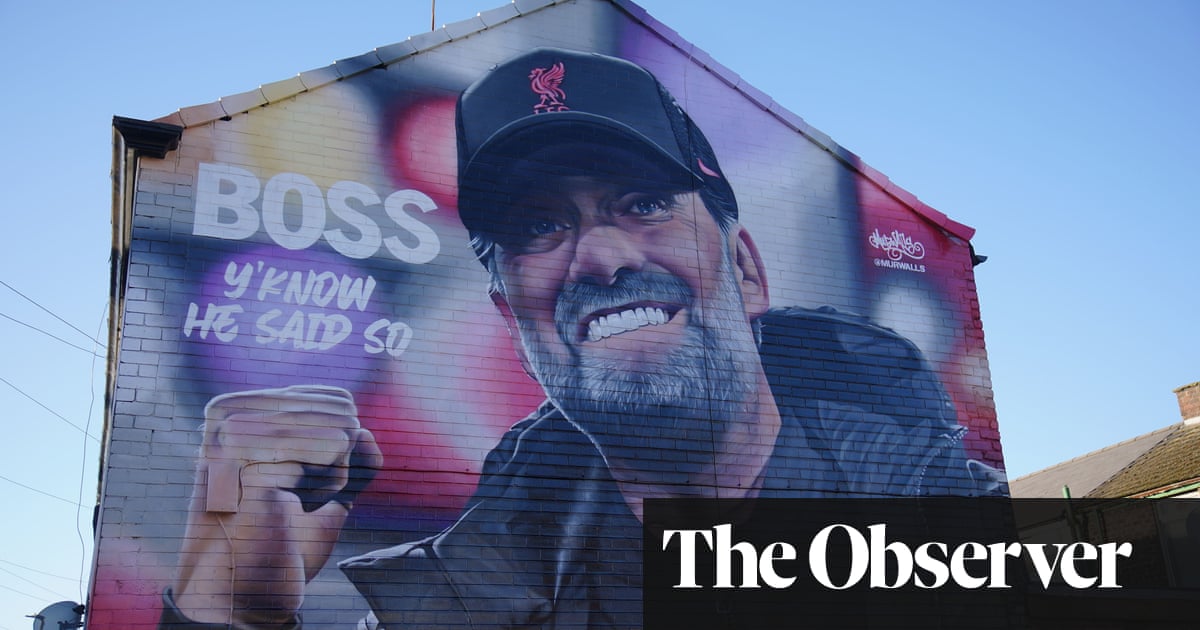
In an era when no artist seems to genuinely retire – as the recent example of Soft Cell shows, heavily promoted farewell gigs can lead to new albums and new albums can lead to further live shows – there’s a genuine sense of finality about Genesis’ Covid-delayed The Last Domino? tour. Keyboardist Tony Banks might have fudged questions about the band’s future, but frontman Phil Collins hasn’t. This, he’s declared, is definitely it, his firmness underlined by audiences’ apparent shock at his visible frailty in interviews to promote the shows: judging by some of the reactions to his recent appearance on BBC Breakfast, you would have thought they had wheeled him onscreen connected to a life support machine.
In truth, anyone with an interest has known Collins has been in poor health for years: he was performing seated and walking with a stick on a 2016 solo tour. Perhaps the expressions of surprise have something to do with how firmly the image of Collins in the 80s is fixed in the public consciousness. Tonight features a string of hits from 1986’s Invisible Touch, which catapulted Genesis to such omnipresence they became not just hugely famous but emblematic of an era in a way they hadn’t perhaps intended – in Bret Easton Ellis’s vicious satire on 80s consumerism, American Psycho, they’re the favourite band of yuppie serial killer Patrick Bateman. Collins snarls his way through the title track, adding the bitter divorcee energy that became a trademark of his early solo career; Tonight Tonight Tonight sounds far more brooding and atmospheric than it did in the days it was never off MTV.
Its eeriness is amplified by the company it keeps. The setlist offers as much from the Peter Gabriel era as it does of the Patrick Bateman years – 1973’s Selling England By the Pound is as well-represented as Invisible Touch – which occasionally makes for some dramatic musical leaps: it’s an eyebrow-raising hairpin bend between the gloss of No Son of Mine and the knotty complexities of Firth of Fifth. But the show skews most heavily towards the period of Genesis’s career that lurks between them, when the band existed in a space between progressive rock and more mainstream concerns: the synth sounds brighter and brasher, the songs more straightforwardly melodic, but the very British weirdness that characterised early 70s Genesis not fully expunged. The result was some of the strangest Top 10 singles of the era: Turn It on Again dives along despite being in four different time signatures; Mama – a song about that reliable hit-making topic, a teenager who develops an Oedipal fixation on a middle-aged sex worker – remains authentically creepy nearly 40 years on. Or perhaps even creepier: Collins performs the song’s middle section of growls and mocking laughs lit from beneath in red, a staging that deliberately turns his weathered face into a sight that could haunt you in the small hours.
It’s not the only time that the show makes reference to his health, although it’s usually played for laughs: he mockingly points to himself when I Can’t Dance reaches the line about having “a perfect body with a perfect face”; in lieu of the complex and lengthy drum duets he used to perform with Chester Thompson, he glumly bashes his elbow and forehead with a tambourine during I Know What I Like (In Your Wardrobe), hammily beckoning for applause afterwards. More poignantly, there are moments when Collins seems to lose himself in the music: casting his gaze towards the drum kit, where his son Nic is deputising for him, he starts miming along to the drum parts he can no longer perform.
But, for the most part, the atmosphere doesn’t feel affecting so much as celebratory. Collins is drily funny between songs, and whatever else has happened to him, his voice still sounds strong; one gentleman of a certain age is so moved by the opening chords of That’s All, he leaps to his feet and starts dancing in the aisles, filming himself for posterity on his phone, before the ushers firmly direct him back to his seat. And the story the show effectively tells is worth commemorating: that of a band who seemed profoundly implausible candidates for global ubiquity, but achieved it nonetheless.












